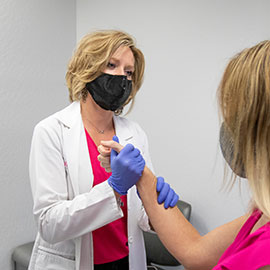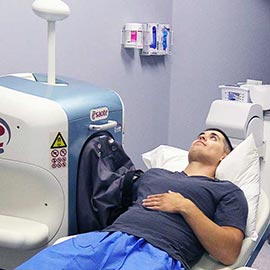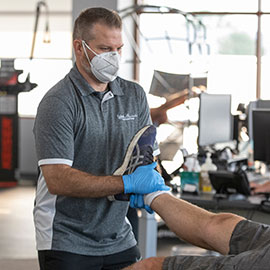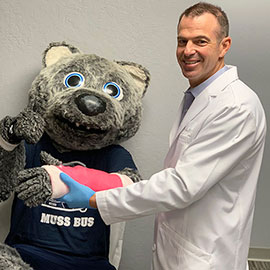Electrodiagnostic Medicine
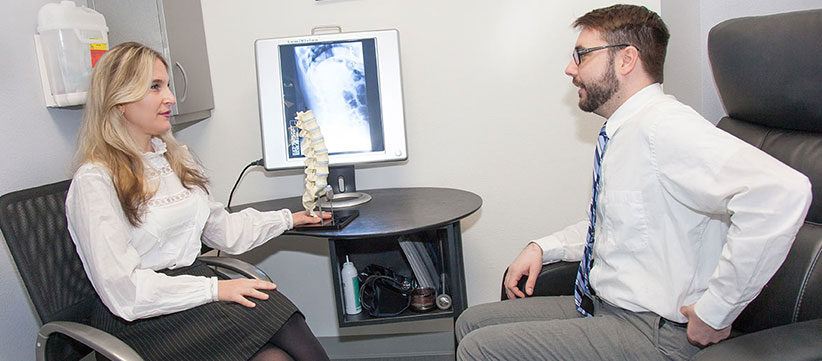
Swift Urgent Clinic is supported by Spine Nevada specialists in physical medicine, physical therapy, neurosurgery and radiology. In order to diagnosis your condition, the providers at Swift Urgent Clinic will gather patient history information and perform a physical exam. Your provider may also order electrodiagnostic tests to record and analyze electrical impulses between muscles and nerves.
These electrodiagnostic tests (EDX) are used to diagnose, evaluate and treat neuromuscular, musculoskeletal, and nervous system disorders. There are two parts to the EDX test, nerve conduction studies (NCS) and electromyography (EMG), usually performed together during the same appointment.
It is the policy of the American Association of Neuromuscular & Electrodiagnostic Medicine that EMG testing must be performed by a trained physician. The physical medicine & rehabilitation physicians (physiatrists) at SpineNevada are experienced in electrodiagnostic studies.
Nerve conduction studies can show your physician how well the body’s electrical signals are traveling to a nerve. During this test, small electrical shocks are applied to the nerve in order to record how the nerve works. The shocks may cause a quick, mild and tingling feeling. The doctor may test several nerves.
During an EMG, a small, acupuncture size needle is placed in several muscles to help diagnosis a back or neck condition. There may be a bit of discomfort when the needle is inserted. The physiatrist will only test the muscles necessary for diagnosis. Physicians are able to see and hear the electrical signals that travel from the needle to the EMG machine.
Common symptoms tested during an NCS/EMG:
Nerve conduction studies and EMGs are types of tests that the spine physician may use to diagnose the following symptoms and others.
• Painful sensations in the neck and back may be due to an underlying nerve root irritation.
• Pain radiating or shooting down the arms or legs.
• Pain may become aggravated with certain movements, such as bending forward or lifting the arms overhead.
• Muscular symptoms may include cramps, spasms, frequent muscle twitches, muscle weakness or loss of muscle bulk.
• Other symptoms include lack of coordination of the hands or feet, deterioration in handwriting, balance problems and loss of control of bladder or bowel function.
What to expect during an NCS/EMG:
The EMG / NCS testing is relatively simple. It can be performed in the office and will take from 20 to 90 minutes. Patients can do normal activities, like eating, driving, and exercising, before and after the tests.
You will be asked to step into an examination room, and to change into an examination gown, unless you are wearing very loose clothing that allows for easy access to your neck and arms and/ or your low back and legs. The test is usually performed with the patient resting in a reclining position on a comfortable examination table so that the muscles being tested are relaxed.
